|
Reflections on the Stations of the Cross during the Covid-19 Pandemic
Reflection and prayers by Alice Matisz SDG
With reprint permission from All Saints Parish in Lethbridge
0 Comments
Many people might be surprised that the question is even being posed. What could be wrong about receiving a vaccine, when we know that vaccinations save lives? The moral issue arises from the fact that vaccine development and testing often make use of cell lines derived from either the tissue of aborted fetuses or destroyed human embryos. Therefore, reception of a vaccine developed and produced from this unethical research presents us with a dilemma that seriously engages our conscience. The short answer from our Bishops on whether it's okay to be vaccinated against COVID-10 is: Yes, it is. Learn more about it from the Bishop's letter re: COVID-19 Vaccine.
Beginning on Ash Wednesday (Feb. 17, 2021) and for each Sunday of the season of Lent, Bishop McGrattan is offering spiritual renewal reflections for individuals, families and communities in the Diocese as we prepare to celebrate the passion, death and resurrection of Jesus Christ. This 8-part video series of Lenten Spiritual Renewal (15-25 minutes reflection) is a part of the Diocesan Spiritual Renewal “Duc in altum | Put out into the deep”. Upcoming reflection themes on Sundays of Lent:
Ash Wednesday On his first reflection (Ash Wednesday), Bishop McGrattan calls for a personal renewal, for us to recognize or reimagine the deep gifts we received at our Baptism First Sunday of Lent | The Primacy of Grace "Opening our lives and receiving God's grace... This is how the church grows, not because of human's effort, but by us being open to receive the grace of God, and to be drawn to Christ." In today’s reflection, Bishop McGrattan speaks of the primacy of grace, that it's always God's initiative that draws us to Christ. Second Sunday of Lent | The Call to Holiness "The acceptance of God's grace is the beginning to the call of the path of holiness. It's the response that each of us are called to make in our lives." In today’s reflection, Bishop McGrattan speaks of the call to holiness. He reminds us of ways to reintensify or redevelop the call to holiness that we received in our baptism. Third Sunday of Lent 2021 | Lent “Prayer is this lifting of mind, entering into this conversation and relationship with God, lifting our heart and wanting our heart to be one with God.” In today’s reflection, Bishop McGrattan reminds us that amidst our busyness and distraction, we must always try to seek silence and solitude, to focus our minds to God. But how? Watch the video to get thoughtful examples and ideas from the Bishop. Fourth Sunday of Lent 2021 | Listening to the Word of God “To receive, to hear, to listen to the Word of God is the essential nature of the Church.” In today’s reflection, Bishop McGrattan reminds us that scripture must be at the forefront of our activities and endeavour as Christians, and invites us to renew how we listen to the Word of God. “Through the scripture, we are introduced to the very life and the mysteries of God.” The listening of the Word of God through praying, reading, studying and meditating with scripture is equally important and necessary step of preparation for when we gather as a community, and when we engage in pastoral activities. Bishop McGrattan shares the 5 steps of Lectio Divina, divine reading praying with scripture. 1. Lectio - reading of text, looking at the words we’re reading, the images of text, and to see the significance of the text and image. 2. Meditatio - what does this passage say to me, or to the early church? 3. Oratio - how does this passage of scripture move me to respond? 4. Contemplatio - how is this word of God forming in me the mind and heart of Christ? 5. Actio - how is this word making my life a gift for others? To study Verbum Domini, download the file below.
Fifth Sunday of Lent 2021 | Proclaiming the Word of God "..being sent forth is part of the nature of the Church. We call it the essential mission." In today’s reflection, Bishop McGrattan brings to mind that faith is often formed by secular values or opinions of the world. As missionary disciples, we are called to recognize these limitations, to understand the challenges we face in proclaiming the Word of God, as we go forward to convey a message of love.
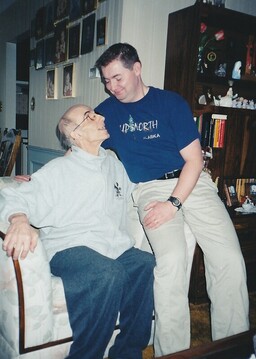 “Let us hurry to love others, they depart so quickly.” (Fr. Jan Twardowski) How is one to begin sharing, publicly I might add, about something personal, intimate, humbling, and dare I say, even embarrassing? Speaking about my relationship with my father has not always been easy for different reasons, the specific details of which are beyond the scope of this testimony. By God’s grace it has become far easier to do so and I believe sharing this story can be of help, a source of inspiration, if not to many, at least to some. Suffice it to say that my relationship with dad had its ups and downs, and at times, was very challenging, frustrating, complex and even hurtful. There are many things I wish I could take back; things I said and thought, the various attitudes, behaviours, and reactions that led most often to the experience of disappointment and sorrow, for both my father and me. I have come to realize, painfully so, the accuracy of the old adage, that time flies. It moves forward so quickly, in fact, that moments of grace and opportunity can pass unnoticed before our eyes, never to return again, thus leaving us potentially bound to feelings of regret, resentment, shame, guilt, unforgiveness, and sorrow. My father immigrated to Canada in the 1960’s, had to learn a new language, assimilate to a new culture, and being the eldest of six, focus on helping his parents and the family survive. He showed discipline, espoused a great work ethic, and took on physically demanding jobs. Eventually, he met and married my mom, and I was the second in the line of 4 children. Difficulties began to escalate between my dad and me during my adolescence. Me seeking my independence, my dad, ever concerned about our wellbeing, trying to control and ensure I’d stay on the straight and narrow. Long story short, I made a major life-altering decision that brought about a tremendous rift between me and my family, particularly between me and my dad. As I was finalizing my decision, my father was diagnosed to be at an advanced stage cancer which required immediate and invasive treatment. The surgery and follow up treatments were deemed a success, but due to the steps I had taken, our relationship seemed to have ended. What ensued was a two year period of no communication, filled, at least on my part with a lot of anger and resentment towards my family. Regrettably, two years into his recovery the cancer returned and this time the prognosis was bleak. My dad was given 6 months to live. It was at this point in time my father called me, informed me of the diagnosis, and asked me to come and visit him. As our financial situation was not the best I reasoned that I could start putting aside some money with each subsequent pay cheque until I had enough for a flight. Unfortunately, the doctor was wrong about the amount of time my dad had. My father ended up dying within a month. Providentially for me and my dad, I had a spouse who would not allow me to put off the visit. She immediately contacted her own father for money to pay for my flight. Within a few days I was at home and with my dad. I spent a week visiting and it was the first time that I can remember, we spent together without any conflict. In fact, there were moments of great intimacy, where I was able to help to alleviate his pain by massaging his feet, of us talking and sharing about our lives, perspectives, experiences, and yes, getting to a place of reconciliation. I returned to Calgary on a Tuesday, telling my dad I would call him daily to check in on him. The next day, Wednesday, my mom called me at 4 pm to inform me dad had died. I cried, a lot. I was moved to tears that God would grant us such an amazing grace and that my dad waited for me to come home. Even now, 19 years since his passing, I tear up as I write this reflection. Things could have ended differently, very differently. Therefore, “Let us hurry to love others, they depart so quickly.” In closing, let me share a few points for your consideration:
Whatever the situation, seek God’s grace, the guidance of a priest, and/or the help of trusted individual.
 Carla Freitag Carla Freitag Carla Freitag likes to giggle when she brushes her teeth. She enjoys listening to music when she draws and, if the mood strikes, she sets her drawing pencil down and begins to dance. What Freitag cannot do is talk freely about what she likes and doesn’t like, so when it was time to plan the menu for her 44th birthday party, friend and housemate Hannah Gaunt devised a friendly work-around. “We sat down with a computer and I showed her pictures. Carla chose hamburgers, French fries and chocolate cake. It was perfect.” Freitag, who has Down Syndrome, is one of four core members who live in a L’Arche home in southwest Calgary. There, the core members live in a community with three live-in assistants, including Gaunt. “Carla is largely non-verbal, but I have lived with her for almost a year, basically 24/7. We have our own way of communicating with each other. When people try to thank me for the work I do, I say, ‘No. You don’t understand. It is such a gift to be part of this community.” The L’Arche model of care L’Arche is an international federation of communities that provide homes and other supports for people with developmental disabilities. Founded in France in 1964, the federation works in 149 communities in 38 countries. In Alberta, there are five L’Arche homes in Calgary and more in Edmonton and Lethbridge. L’Arche communities challenge notions “that people with developmental disabilities are simply to be taken care of,” explains Robyn Jackson, Community Leader and Executive Director of the Calgary community. “At L’Arche, we acknowledge that we all need care, regardless of our abilities. Our communities provide the space for all of our members to discover and nurture our gifts—and to provide opportunities for people to share those gifts while giving them grace for their limitations.” 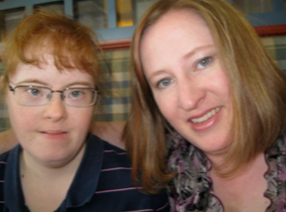 Carla Freitag and her sister, Kristin Arcega Carla Freitag and her sister, Kristin Arcega “I think L’Arche has been wonderful for Carla,” says her only sibling, Kristin Arcega, a parishioner of St. Michael Catholic Community. “Carla can do many things independently, but she needs help with self-care and life skills. They take wonderful care of her and it’s like a family. They’ve had to change some routines because of COVID, but when they can, they go out to church on Sunday, they have a weekly prayer night, and they make sure Carla has day programs that are unique to her. She goes to an arts program on Monday and bowls on Saturdays.” “We’ve been nothing but happy with Carla living there,” adds her mom, Ann Freitag. She and her husband David, who passed away in 2016, liked the fact that “there is a spiritual dimension to Carla’s life there. Not everyone is Catholic, but they participate in prayer, and we were grateful that she is able to attend Mass.” Pre-pandemic, Ann brought her daughter home one weekend a month. While she misses that interaction, L’Arche has devised health protocols that allow Ann to visit her daughter. “Her home is where I am, but L’Arche is her second home.” World Down Syndrome Day The United Nations formally recognizes March 21 as World Down Syndrome Day (WDSD). In Canada, people are encouraged to mark the occasion by wearing colourful and mismatched socks. Socks symbolize WDSD because chromosomes are shaped liked socks and people with Down Syndrome are born with an extra chromosome. In 2021, children with Down Syndrome are commonly integrated into public school classrooms. That wasn’t as easily done in years past “and I remember how hard my parents worked to integrate Carla,” says Arcega. While most of her education was in Calgary, Carla graduated from high school in Summerland, BC. Looking back on those days, Ann Freitag says their efforts were worth it and she encourages other parents whose children have special needs to pursue what’s best for their kids. In addition to advocating for inclusion, the Freitags accessed other interventions, including speech and occupational therapists. “Express your wishes and don’t be afraid to explain why you want this for your child,” says Ann. She remembers how good it was to watch her youngest daughter graduate from high school and share the excitement of another milestone in her graduation cap and gown. More recently, Carla Freitag won the Jane Cameron Award, a national art award. Today, Hannah Gaunt is working on another milestone with Freitag. Using a program developed for people with Down Syndrome, she’s helping Freitag improve her reading skills. A hearing impairment and limited vocabulary can make Freitag difficult to understand, “but because she reads out loud and I’ve spent so much time with her, I understand what she says. She reads four books independently now. That’s so cool.”
Living and working in Brooks, about one hour west of Medicine Hat on the Trans-Canada highway, results in long bus trips for school teams. The longest bus trips are reserved for the 6-man football team. This is because the league is province-wide, so travelling to and from Edmonton in one day for a game is not out of the ordinary. It’s interesting to remember the conversations that occur on bus trips that long. I have had the opportunity to drive the bus for the football team on several occasions. Usually, the rides are juxtaposed by periods of silent snoring and cacophonous adolescent male singing, but sometimes conversations of substance emerge. I remember driving home from a game one day a couple of years ago when two of our senior players were sitting near the front with the head coach and myself. I was driving. The topic of relationships came up. These two players were tough, intelligent men. They were survivors. They had come to Canada a few years before from Colombia. Neither had a father that was active in their lives, and both exuded swagger and machismo. Both were involved in long-term relationships with young women, also from Colombia. In the process of the conversation, the question of love, and what it really meant, came up. What does it mean to truly love another person? The coach and I embraced this opportunity to reflect on and explain the sacrificial nature of love that comes from Christ and that we are called to mirror this kind of love in our relationships with others. These two boys were engrossed in the conversation. They really wanted to know how to be a good partner to their girlfriends, how to love them properly. They knew that secular society’s explanation for love was incomplete, and they were thirsting for wisdom and truth. The beauty of Catholic education is that these conversations can happen openly and honestly, even on a long bus ride back from a football game. The truth of Christ’s love for us and how that love is the exemplar for our relationships was fully shared and with God’s grace, settled in the hearts of those two men. Almost three years later, both these men are excelling in post-secondary education and both are still with the girlfriends they had when that conversation occurred. Hopefully, one day, I will be invited to a wedding or two! As Catholic educators, it’s important to take time this Lent to embrace opportunities to share your faith with your students. Christ truly is the way, the truth, and the life! It may even make a long, tiring bus ride one of the most memorable moments in your car.
For students in our Catholic schools, Shrove Tuesday heralds the coming of Lent. This year, however, for many schools, there were no pancakes prepared by staff or community volunteers. The pancake breakfast, a tradition beloved by students and staff, like so many other community celebrations, have been impacted by COVID-19. This includes Ash Wednesday. Inherent to our Ash Wednesday ritual are the words spoken at the tracing of the cross on our forehead: “Turn away from sin and be faithful to the Gospel.” This year, within schools, there were no words spoken, nor a cross traced upon the forehead. Instead, a reverent silence was observed as our chaplains sprinkled ashes upon our heads. This was different from our normal experience of receiving the blessed ashes. Seeing the cross of ashes on the foreheads of friends and school staff is always intriguing for students and for others in the wider community who often ask what the mark means. We might say something to the effect of: “The blessed ashes remind us that we are marked by God and demonstrates to others that we are committing to change, a conversion of heart, in preparation for Easter.” This year, however, there were no casual inquiries about ashes upon foreheads. Again, this is one of the effects of the pandemic. We understand that the experience of some students and staff in terms of our faith celebrations, many relegated to online experiences, are not as we have been accustomed. There is, however, consistency in our Ash Wednesday scriptures. This steadfastness of the Word is important especially during these times of change. The readings we experience on Ash Wednesday help our students and staff understand that we all have a need for repentance and that “God is gracious and merciful, slow to anger, and rich in kindness” (Joel 2:13). St. Paul reminds us that the world sees the presence of Christ in the way we act (2 Corinthians 5:20-6:1). This is central to the Catholic school whereby through action and word, and the example of Christ, students are inspired to learn and are prepared to live fully and to serve God in one another. Finally, in Matthew’s Gospel, Jesus reminds us that almsgiving, prayer, and fasting are to be conducted humbly. These actions are inherent in our personal Lenten journey. Although the pandemic has changed many of the routines in our schools and impacted how we perform our rituals, we know that our faith traditions and the gift of Catholic Education give us resiliency and the hope to persevere in times of challenge. We are each called to bear witness to Jesus who models the necessity to walk humbly with God and with each other towards the renewal, hope, and transformation that culminates in Easter. Lent invites us to journey through the desert of our sin to the foot of the cross and ultimately, to share in the light of the resurrection of Jesus. We are, after all, Easter people. That will not change!
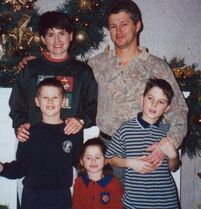 My path to participating in the 40 Days for Life (40 DFL) Prayer Vigil was a winding one. I was a child of the 60’s and 70’s and was fully indoctrinated into the culture of socially progressive values. By the time I had graduated from University, I had embraced the feminist movement. I had grown up in a Catholic family, but we were not practicing our faith, so I did not have any foundation in the teachings of our Church. It was easy for me to accept the values of feminism. I believed strongly in the right of a woman to choose to abort if she wanted to. I met my husband after graduating. He was a practicing Catholic and was strongly pro-life. My husband’s faith grew on me because he was so faithful to the teachings of the Church. By God’s grace, I came to believe in and practice the Catholic faith that I had never known as a young woman. During each of my three pregnancies, I was in awe of my baby growing within me, and I was amazed at the birth of each of my children. So perfect and tiny and soft and beautiful. Each one a miracle. My heart awoke to the thought that abortion was the wrongful taking of another human’s life. One day as I was leaving church, I saw a table with 40 DFL paraphernalia on it and sitting behind it was a bright, articulate woman that I knew through my work. I was surprised to see her, and she told me that she was on the Calgary organizing team for 40 DFL. She said that my parish did not have a 40 DFL representative and asked me if I would take on that position. Suddenly, I was forced to consider what I thought about abortion. I recalled the feminist slogan, “My body, my choice”. I knew that there was more than one body in a pregnant woman. Each of my babies had their own DNA separate from mine. That slogan no longer persuaded me. The baby had no choice. I began to study the issue. I was convinced by embryology that a fetus is a human being from the moment of conception. Human beings deserve human rights including the right to life. We don’t kill toddlers because they are small, dependent, or less developed than older children, so why do we kill defenseless babies in the womb? The answer is because it’s legal and they’re inconvenient. I learned that in Canada over 100,000 babies are aborted each year; that a baby may be aborted at any age and for any reason. This shocked me. Most women abort because the pregnancy is unplanned, and they feel like they have no other choice. Yet, in truth, a mother always has the choice to carry the baby to term and parent the baby or place the baby for adoption. There are many supports for women experiencing unplanned pregnancy, and women need to be shown that choosing life is possible and that there is assistance available to them. I became our parish representative on 40DFL. We stand near the Kensington abortion facility during our twice yearly 40-day campaigns and pray and fast for an end to abortion, for mothers to choose life for their babies, for the abortion workers, and for the community’s heart to be open to the truth of the value of life. Do we make a difference? Last fall, during the 40-day campaign, a young mother with her child alongside approached one of our volunteers, named Mary, who was standing in prayer near the abortion facility with her two teenage daughters. The young mother’s child had a coloured drawing in her hand and she handed it to Mary. The mother thanked Mary for being there and told her that before her child was born, she was considering abortion, but that the presence of people near the facility praying persuaded her not to abort her baby. Her baby was now about 6 years old and was the child who had handed Mary the drawing. It is anecdotes like this that assure us that our prayers and presence there are never wasted.
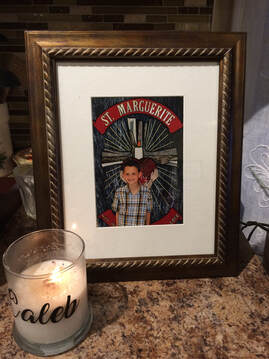 My heart was indelibly wounded in July 2018, when my 8-year-old son Caleb died suddenly. In prayer, God has revealed that some of the wounds that I have because of this traumatic event and the aftermath are because of my own disordered expectations of myself. Shortly after Caleb died, there was a video circulating on social media about a woman whose family had been murdered, extolling her faith and the joy that she exuded despite the tragedy she had experienced. I don’t know how much time had elapsed since this woman’s tragedy, but I felt that I too should, after only a few short months, be joyful and inspiring others with my faith. Because of the expectations I had of myself, it was very hard to talk to others about my all-encompassing grief. I felt like I had nothing to offer anyone. I thought that because my grief was so big that if I shared my feelings people would not be able to handle it and they would leave, so I pushed them away. Somehow, I felt that it was better to push others away than for them to walk away. In the resulting loneliness and isolation, I learned to turn to God, spending time with Jesus in the Garden of Gethsemane, in His passion and on the cross. God also brought friends into my life with whom I felt I could share a small part of my grief. They blessed me with their presence, and I blessed them with mine. In January, we celebrated Caleb’s third birthday in heaven. It was on Caleb’s birthday that God revealed to me in a particularly poignant way how He loves me (and all of us) through others. A person very dear to me, whom I had pushed away, offered my family a gift. When it was first offered, I was mortified, and I told myself that I could not accept it. I realized, through this reaction, how much I am and have been ashamed of my grief. I don’t want people to see my brokenness, even though all of us experience grief and brokenness in many ways. I wanted to be seen as healed, holy, joyful, and inspiring, and I thought that my brokenness got in the way. Yet it is in our brokenness that we find God. When we try to hide our flaws and imperfections, we are closing the door on God’s work in our lives, much like how Jesus could do little work in Nazareth because of their unbelief (Matthew 13:58). As I deliberated whether I should accept this gift, in prayer God clearly told me, “Let this person love you.” I listened to His voice and received this gift. In receiving it, I was able to encounter God and His awesome love for me. I had hardened my heart to others for so long, trying to prevent it from being hurt, trying to avoid rejection and derision because of my own pain and brokenness, but in the process, I hurt my heart more than those people ever could have. I didn’t realize how God was trying to love me through others or the wounds I had inflicted on myself because of my unreasonable and unattainable expectations. Yet because God spoke to me so clearly in the “let this person love you,” I was able to reject the temptation to refuse a gift offered in love. As I received this gift, which fulfilled much of what I was unwilling to admit that I needed, I could feel God’s all-encompassing love. While I felt assured of God’s love previously, I hadn’t realized how deeply God wanted to love me through others. For one person, it was a small act of love, but it was an all-embracing act of love from God. God demonstrated a small part of His infinite love for us all, a love that brought me peace, calm, and His personal love for me on a day that brings much anguish to this mother’s heart. Let yourself be loved, in the way He wants to love you.
There is much to be said for the traditional customs and disciplines of our faith. But that doesn’t stop our family from actively avoiding the forty-ONE days of Lent. When the practice of using up the shortening in the house, to prepare for reduced eating during Lent, prompted the making of pancakes on Shrove Tuesday, it might have made historical sense. Today, as a man who likes protein, pancakes on the day before required fasting and abstinence seems like a poor way to fortify myself. So, in our house, we have modified the yearly last hurrah into ‘Steak’ Tuesday. It makes sense that each Lent offers an opportunity to take another step on the stairway to heaven, advancing in holiness by disciplining the temptations to think primarily of ourselves. Hearing the call to fast, pray, and give alms should prompt us to re-examine the many ways we choose our comfort over God and neighbour. Seeing one’s own unfiltered selfishness is not a pretty picture. There is lots of wisdom in the liturgical cycle of the Church – times of fast and feast, recalling the stories from our family of faith. But the living out of our faith does not take place for the most part in the sanctuary and meeting rooms at the parish. Where the rubber really meets the road is in our interactions away from the consolations and encouragements of our common worship at Mass. It’s with friends, at work, and in the home that a more accurate picture of our dedication to sanctity emerges. Sometimes family life seems like its own ongoing Lent. Each of us is continuously confronted with the needs and desires of the others: siblings, parents, children, spouse. Neither we nor they are entirely reasonable. And yet, we are still supposed to love one another – as we love ourselves (cf. Matthew 22:39b), as we love God (cf. Matthew 25:40b), and finally even as God loves us (cf. John 13:34). That’s a tough row to hoe, as the saying goes. But the confines of a shared life together are not only a type of temptation in the desert; they can also be little Gethsemanes with not-my-will-but-thines. Last night, I overheard one of our daughters apologize to a younger sister for her excessive anger earlier in the day. There are many stumbles during a family’s day, but those are also always chances to stand up again renewed. We are proud of our daughters very often, yes, but more so we are thankful for the grace of God present in them as they work out their salvation with fear and trembling. It has been said that not only do parents raise children, but children are able to help parents grow up too. The requirement to put another before self is constantly in front of mothers and fathers, starting when they are young, cute, and helpless, and when they are adolescent, awkward, and oppositional. This is the domestic Church in her sanctified fruitfulness. The same opportunity exists in the union of two-become-one, who in spite of the sacramental reality of marriage, remain two individuals. How often do we really seek to put the other first by understanding, by serving, by loving? Perhaps it starts easier in the exciting honeymoon phase of early life together, but it needs to continue as the nuptial years advance. Scripture and faith more generally use much family language to describe heavenly realities. God is Father; the Church is mother; we are brothers and sisters. And we live together now in anticipation of the wedding feast of the Lamb, readying ourselves for that celebration as best we can!
|
Author
Catholic Pastoral Centre Staff and Guest Writers Archives
July 2024
Categories
All
|
||||||||||||||||||||||||||||||
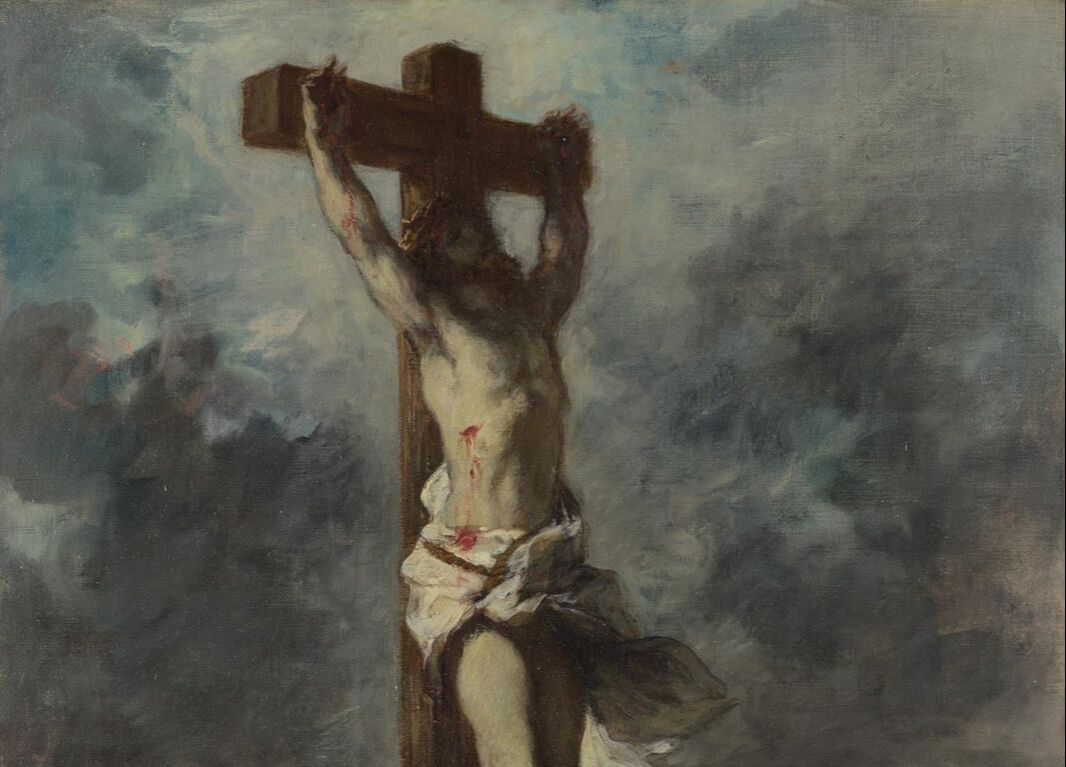

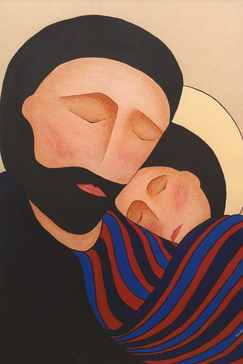

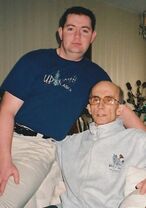


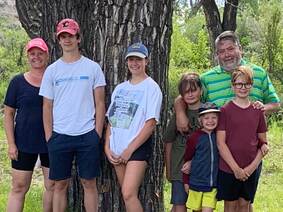
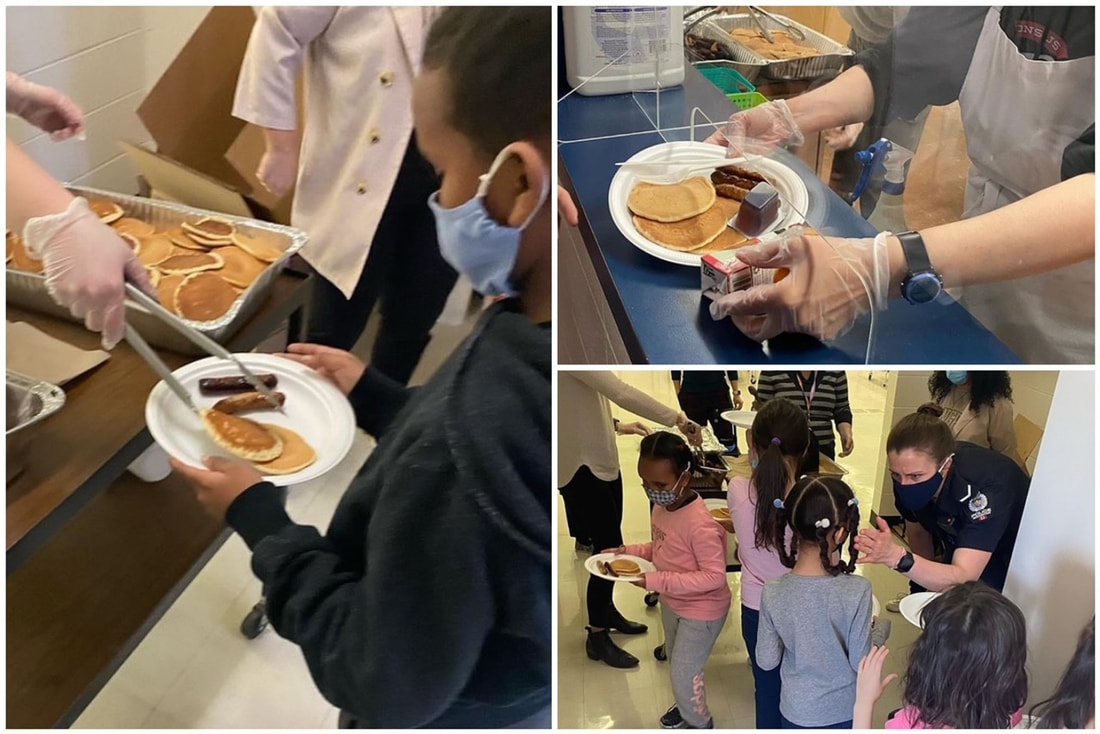

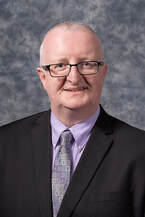
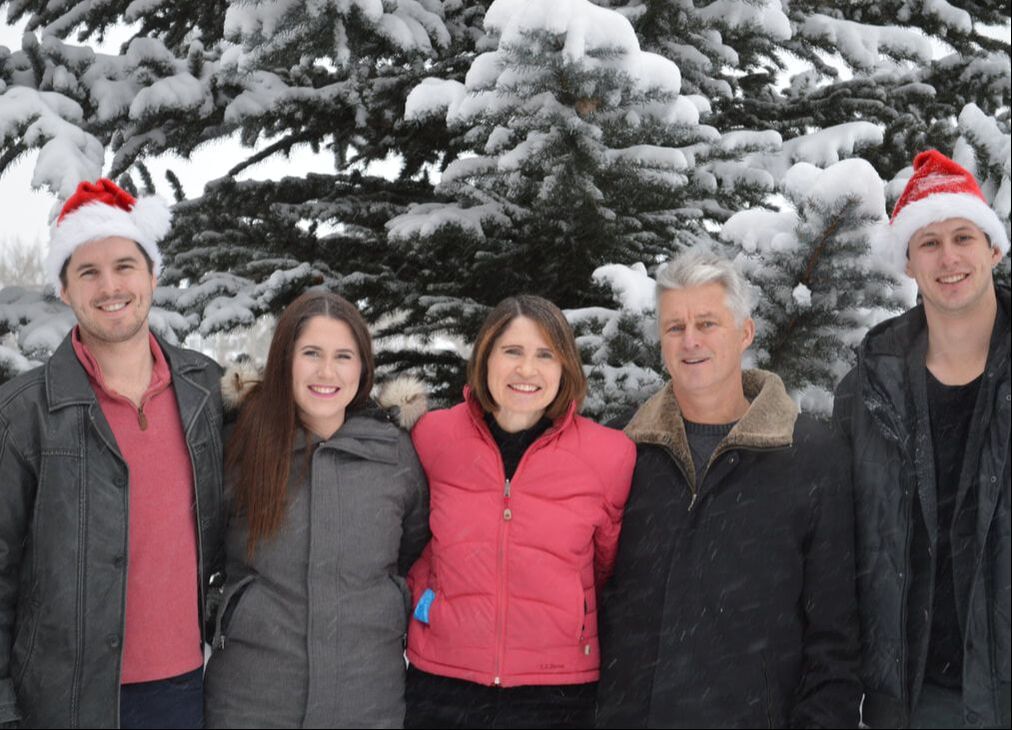
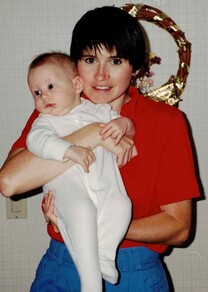
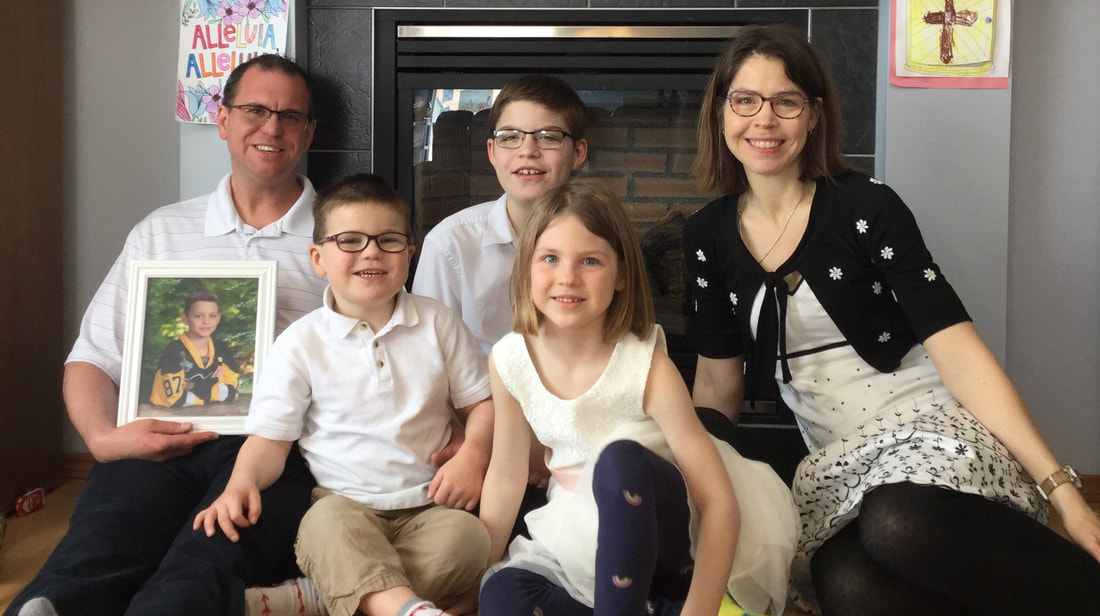
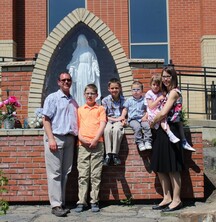

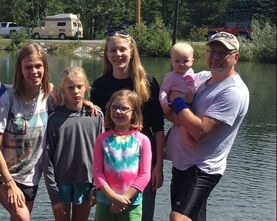
 RSS Feed
RSS Feed